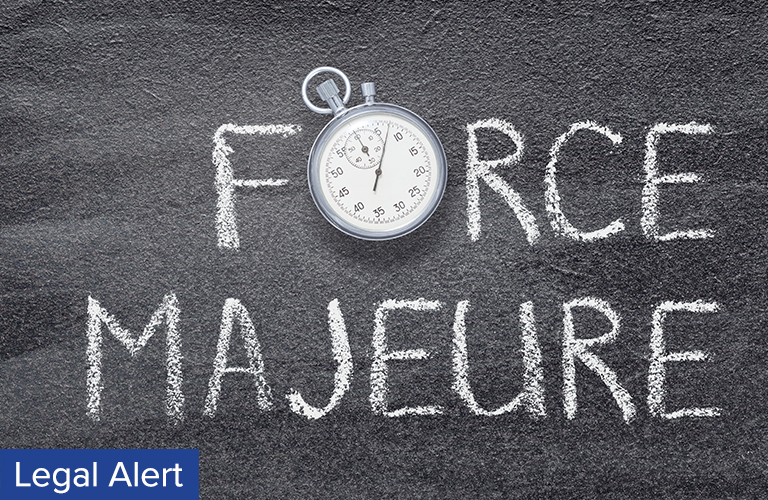
Mirror Lawyer: Are force majeure, act of God or frustration the same?
Dear Mirror Lawyer, Since the declaration of the COVID-19 Pandemic in March 2020 and the lockdown of many countries, I have heard discussions in the media worldwide referring to business contracts and agreements being affected by force majeure, Act of God or frustration of contracts.
Are they the same? What are the differences (if any) among, Force Majeure, Act of God and Frustration?
Prof Nelson, Agbogba, Accra.
Dear Prof, The phrase “act of God” is used to describe an event outside of human control or activity.
Advertisement
Black’s Law Dictionary defines an “act of God” as an overwhelming, unpreventable event caused exclusively by forces of nature. It is usually a natural disaster such as flood, earthquake, tsunami or tornado and hurricane.
“Force majeure” is a French term that literally means greater force. It is a common clause in contracts and the purpose is essentially to free both parties from liability or obligation when an extraordinary event or circumstance beyond the control of the parties, such as war, strike, riot, crime, pandemic, civil unrest and terrorist attack or any other event described by the legal term “act of God”.

The legal effect when force majeure clause in a contract is triggered is to relieve one or both parties from fulfilling their obligations under the contract.
The concept is more of a civil law origin but lately it’s used widely in contracts worldwide. In practice, most force majeure clauses do not excuse a party's non-performance entirely, but only suspend it for the duration of the force majeure.
A frustrated contract is a contract that, subsequent to its formation, and without the fault of either party, is incapable of being performed due to an unforeseen event, resulting in the obligations under the contract being radically different from those contemplated by the parties to the contract.
Under Common Law, the legal consequence of a contract which is found to have been frustrated is that the contract is automatically terminated at the point of frustration.
The contract is not void ab initio i.e. from the beginning but only future obligations are discharged.
In the English case of Taylor v Caldwell two parties contracted on the hire of a music hall for the performance of concerts. Subsequent to contracting, but prior to the dates of hire, the music hall burned down.
It was held the contract was impossible to perform. In the words of Lord Blackburn "where a contract becomes impossible to perform and neither party is at fault, both parties may be excused of their obligations".
A thin line, however, separates these terminologies and from the definitions could be used interchangeably depending on the region the contracting parties reside.
Force majeure for example, when used in common law jurisdiction, could be treated as the doctrine of frustration of contract.
The main difference among the three terminologies is that events leading to force majeure and frustration may be caused by natural acts referred to as an act of God.

Further, the act of God and the doctrine of frustration are principles developed out of the common law and may be invoked even when the parties have not made provision for it in the agreement.
In the case of force majeure clause, it originated as a concept of civil law jurisdictions. To invoke it, the parties must expressly make provision for it and define it in the contract.
Another difference is that a finding of frustration automatically results in the discharge of all parties from their obligations in the contract while force majeure offers the flexibility for parties to fashion the responses as they see fit.
With respect to COVID-19, in the aftermath of the lockdown, many suppliers would not be able to perform their contractual obligations or may seriously delay in so doing. Thus, they may argue that they should not be held liable for their contractual non- performance.
On the other hand companies may also not be able to honour their customer’s agreements. Under such scenarios, the force majeure clause would be a determining factor to understand the implications of these events.
For individuals and businesses that wish to rely on frustration, the main hurdle to overcome would be the ability to demonstrate that the changes to the nature of contractual obligations are permanent, and not just temporary or transient.

Most effects of the COVID-19 such as illness, quarantine, travel restrictions, shuttering of businesses and schools, or working from home, seem temporary.
However, if time is of the essence for the performance of a fundamental term in a contract, and such performance is utterly prevented by the pandemic, the parties may have a case.




